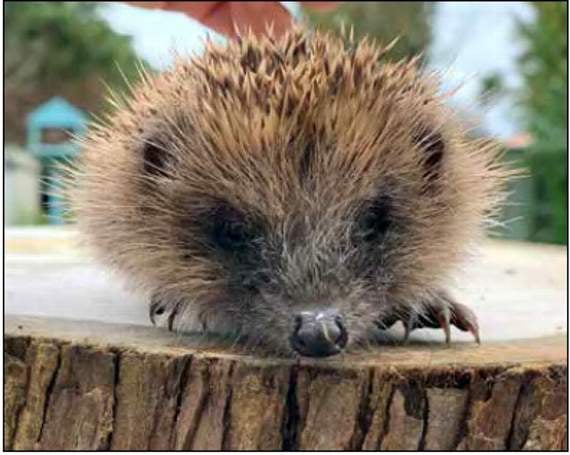SUE Gear from Bude has been running Born to be Wild for 20 years, helping injured animals and releasing them, once cared for, back into the wild.
Here, she gives some tips about wildlife during the lockdown and how we can all do our bit to help.
Spring has arrived and it is normally the time we are out and about, but instead we are all in lockdown. The Coronavirus has us all confined to our houses and gardens. I think those of us who have gardens are very lucky as we can still get out and get close to nature just outside our back door.
The first thing we should be doing is taking the Government’s advice and staying at home and keeping the safe two metres distance between each other, and no unnecessary travel. We must all do this to keep ourselves safe and help our wonderful NHS.
But what I’m worried about is that we will be going a bit crazy in the gardens as we have nothing much else to do.
So I would just like to give a few tips on how to avoid disturbing wildlife which will hopefully reduce the number of birds and mammals becoming orphans as this could be a big problem as we are not allowed to drive around unless it’s really essential.
In past years I have driven in and out of Bude up four times a day, some days even more, picking up casualties and orphans. Obviously I cannot do this now.
So let’s try and do our bit by keeping the wildlife in your gardens safe. Hedges and shrubs are an ideal place for nesting garden birds so please take a few minutes to peep inside and just check for nests. If you see one please leave it well alone.
Compost heaps, old log piles and pampas grass are great places for hedgehogs and other mammals to makes nests and give birth to their babies. So again just be very careful checking these areas before disrupting them.
If there is any evidence of nesting wildlife, please leave it alone. If you accidently disturb a nest please try and put it back as best you can, try not to touch the babies with your bare hands, then back off and go in doors. Hopefully the mother will redo the nest or even move her babies to a safer site.
A lot of people will think they are doing the right thing by trying to rescue them when they should be left alone. You could check a few hours later and hopefully they may have been moved.
If they are still there and they feel cold to touch they may have been abandoned and will need help. Then please ring for advice on what to do next.
Most of my other calls in spring are from people who see little young birds on their lawn that appear to be unable to fly. They think they are in trouble and scoop them up when they shouldn’t.
Please don’t touch! These young birds are fledglings that have just left their nests and may spend a couple of days on the ground. This is normal and they will still be fed by their parents.
We have all seen baby birds all fluffed up flapping around their mums. They still like to be fed by them and they just need a couple of days to adjust and fly properly.
This is a crucial time for them so if you own a cat it would be a good idea to keep them in if you know babies are around. Just give them a chance. They are extremely difficult to rear when they get to this stage to so please leave them alone.
If you need any advice please don’t hesitate to call I will try and help if I can. If the casualties really need help we will endeavour to help them.
Sue can be contacted on 07817 127754 or 01288 331604.



.png?width=209&height=140&crop=209:145,smart&quality=75)

Comments
This article has no comments yet. Be the first to leave a comment.